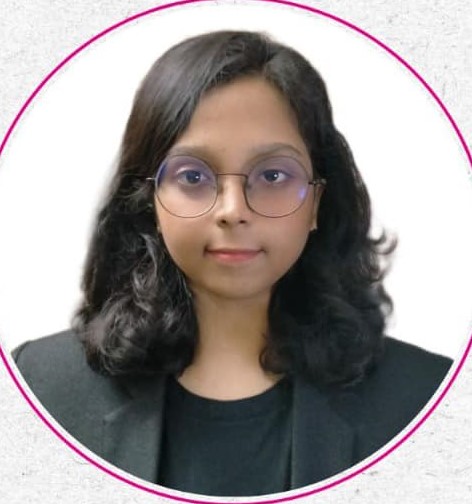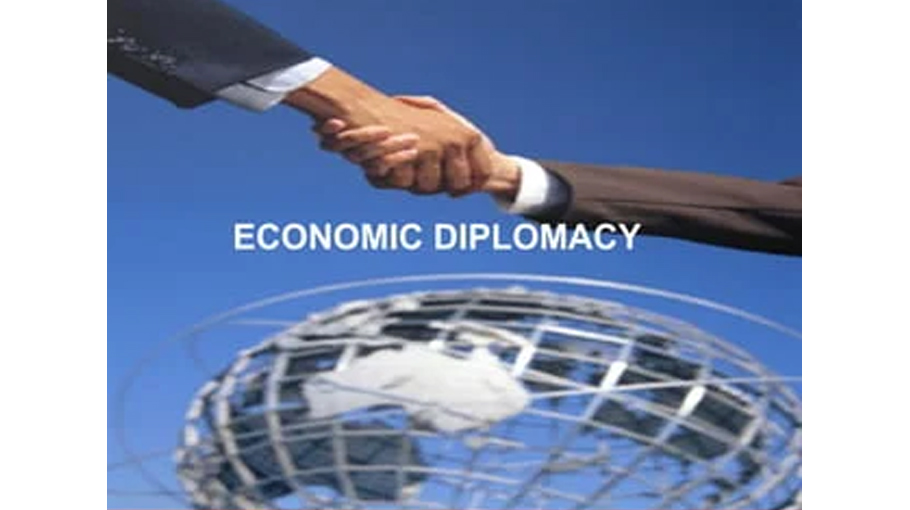Soft power as a potential tool for economic diplomacy

With the advent of the times and military might considered to be more significant, "soft power" has come up as a very strong tool in the hands of nations wanting to uplift their influence globally, without the use of force. Soft power is the ability to influence the preferences of others through appeal and attraction, not by force or monetary inducement; it was introduced by Joseph Nye in the 1980s. For a developing country like Bangladesh, enabling soft power through effective policy mechanisms is not just an advantage but necessary for sustainable economic growth and influence on the world stage. The paper discusses how Bangladesh can play out its soft power resources in a bid to enhance its economic diplomacy toward long-term socio-economic development.
Soft power is an information pool that represents culture, political values, and foreign policies habitually attractive to other nations. Hard power depends on the sticks of military and economic tools to change behavior by threats and the arrows of military intimidations, usually involving sticks in the form of threats, or carrots in the form of inducements. In the case of Bangladesh, soft power would mean using its rich cultural tradition, global educational initiatives, and media presence to create for itself an enhanced status in the international order.
Cultural Heritage is the most conspicuous soft power resource of Bangladesh. The country's music, art, literature, and historic monuments are very rich and can easily draw global attention. Regarding the image of Bangladesh, cultural diplomacy can play a vital role that can be perfected through exchanging arts and culture. Cultural centers abroad, participation in global cultural events, and tourism with historical sites can leave a lasting impression about the culturally rich and diverse nation of Bangladesh.
A second critical part would involve investment in educational exchanges. Scholarship opportunities, partnerships with foreign universities, and the projection of Bangladeshi education abroad are just but a few ways to build long-lasting relationships and to profile the country's education on the world platform. That earns goodwill over time and positions Bangladesh as a regional education hub, attracting students and scholars from all over the world.
Improved use of the media and communication platforms, therefore, can be a crucial component in improving the soft power of Bangladesh. International broadcasts and social media have constantly reflected the country's innovations, cultural diversities, and attempts toward development to alter global perceptions and paint a more positive international image. It's a charged digital diplomacy enabled with an effective strategy in place that can ensure Bangladesh a stronger voice across the global platform with Twitter, Facebook, and YouTube.
That means sound economic policies and good governance are of prime importance for inviting foreign investment to ensure economic growth. On the other hand, strong IPR laws, judicial reforms, and anti-corruption measures may be adopted to help this country, Bangladesh, become more attractive to foreign investors. Such steps, in a sense, improve the business environment and build an image of Bangladesh as a country committed to transparency and upholding the rule of law.
Soft power can be further developed through public diplomacy consisting of exchange programs, cultural events, and humanitarian aid missions. Bangladesh can build the image of being a duty-minded and empathetic nation by active involvement in international peacekeeping missions and humanitarian works. These will create an atmosphere of mutual understanding and cooperation that will help to fashion a more enabling international environment for Bangladesh.
Countries worldwide have effectively utilized soft power to enhance their economic diplomacy through various strategies. China’s Confucius Institutes promote its language and culture globally, while France’s Alliance Française and Japan's cherry blossom festivals boost cultural goodwill and tourism. South Korea's "Hallyu," including K-pop and dramas, has significantly increased its cultural influence. Educational exchanges like the U.S. Fulbright Program and the UK’s Chevening Scholarships foster enduring international relationships, as seen in Singapore and Australia’s thriving educational hubs attracting global students. Media strategies are crucial, exemplified by the BBC World Service and China’s CGTN in shaping international perceptions. South Korea’s social media presence further promotes its culture worldwide. Humanitarian aid and peacekeeping, such as Norway’s development aid and Japan’s projects in Asia and Africa, along with Canada and Sweden’s peacekeeping roles, enhance their soft power by showcasing a commitment to global development and peace. Legal frameworks and governance practices, like Germany’s strong intellectual property laws and Denmark’s transparency measures, attract foreign investment and build international trust, a principle also upheld by New Zealand’s anti-corruption stance. Effective trade diplomacy is illustrated by the United States’ extensive trade agreements, Japan’s promotion of national brands like Toyota and Sony, and Italy’s luxury brands, integrating cultural and economic diplomacy to elevate their global standing.
These examples provide a roadmap for developing nations like Bangladesh to enhance their economic diplomacy by leveraging cultural, educational, and legal resources for comprehensive growth and international influence.
Although there might be some potential benefits, the country has a number of challenges in implementing strategies to ensure that it effectively projects its soft power. These include the limited resources available, geopolitical complexities, the requirement for multi-sectoral coordination, and others. Learning from best practices elsewhere and adopting the local context, therefore, Bangladesh can overcome these challenges and harness its soft power toward sustainable economic growth.
Policy Recommendations
1. Cultural Diplomacy: Be very instrumental in promoting Bangladeshi culture through international cultural exchanges, festivals, and setting up cultural centers in most of the world's major cities. This helps promote mutual understanding and in turn helps attract tourists and increase economic growth.
2. Education and Research Investment: Offer more scholarships and development programs for international students, more particularly from neighboring countries. Further offer collaborations with renowned global institutions so that research and academic reputation would be boosted, which again puts the ground for long-term diplomatic relations.
3. Digital Diplomacy: The countless success stories and opportunities of Bangladesh may be projected through digital media. For this, a separate team for digital diplomacy may be formed to represent it in online forums and be in one-to-one touch with the target international market to build a more positive global image.
4. Economic Diplomacy: Participation in international trade fairs and economic forums for drawing foreign investments and trade agreements, focusing on key areas such as textiles, ICT, and pharmaceuticals by global investors.
5. Expanding Humanitarian Engagement: Raise participation in UN peacekeeping operations and other global humanitarian activities. Such efforts may project India's image as an empathetic nation committed to global peace and stability.
6. Strengthening Good Governance and Combating Corruption: Ensure open governance practices and strong anti-corruption initiatives. Participate in international good governance efforts to build international trust and attract foreign investment.
Bangladesh is at the juncture where the strategic exercise of soft power can largely enhance its international status and create sustainable economic development. Some of the engines that would enable Bangladesh to provide added impetus to its economic diplomacy and global influence are cultural heritage, education, and quality governance. Best practices and the way forward in addressing the challenges, coupled with robust mechanisms of policy, which would be the path to achieve this. As development progresses further in Bangladesh, the intelligent use of soft power is going to be of utmost importance in shaping its future course on the global scene.
References: Joseph S Nye, “Soft Power: The Evolution of a Concept,” Aluko Opeyemi Idowu and Olusola Ogunnubi, “Nigeria’s Soft Power and Economic Diplomacy in Africa,” Binod Khanda Timilsana, “Soft Power and Small States: A Theoretical Discussion,” Shweta Karki and Sarashree Dhungana, “Soft Power in International Relations: Opportunities for Small States like Nepal,” Mohammed BE Saaida, “The Role of Soft Power in Contemporary Diplomacy,” Ernest J Wilson, “Hard Power, Soft Power, Smart Power,” Hongying Wang and Yeh-Chung Lu, “The Conception of Soft Power and Its Policy Implications: A Comparative Study of China and Taiwan,” Nikolay Anguelov, “Sanctions or Soft Power: Implications for Competitiveness,” Linda Yueh, “Economic Diplomacy in the 21st Century: Principles and Challenges,” Sajid Karim and Mohammad Jasim Uddin, “Foreign Policy of Bangladesh: Emerging Challenges,” Melissa Nisbett, “Can Soft Power Be Bought and Why Does It Matter?” Courtney Fingar, “What Is Soft Power and Does It Impact Trade and Investment?” Roopa Desai Trilokekar, “FROM SOFT POWER TO ECONOMIC DIPLOMACY? A Comparison of the Changing Rationales and Roles of the U. S. and Canadian Federal Governments in International Education,”
Sheikh Mehbuba Moitree is a final year student of LL.B (Honours) in Maritime Law & Policy of Bangabandhu
Sheikh Mujibur Rahman Maritime University




